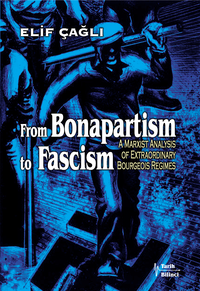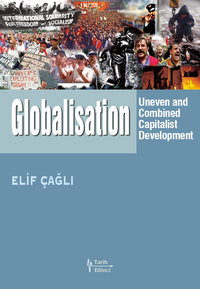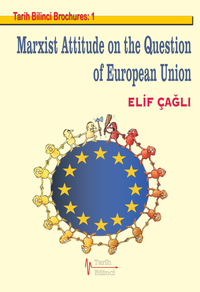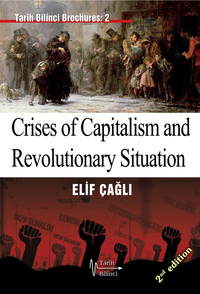Protests to stop the attempt to plunder the Taksim Gezi Park by capital have swiftly spread across the whole country and turned into an anti-government revolt. Now there are anti-government demonstrations being held everyday in many cities, Istanbul, Ankara and Izmir in particular. In Istanbul demonstrations have spread over many neighbourhoods. Overall, hundreds of thousands have been taking part in the mobilisation. Thousands of people have been arrested, injured and two people were killed.
This rapidly spreading mobilisation already signifies an important turning point. For the first time AKP and Erdogan has received such a big blow. The discord in different statements of various AKP spokespersons shows their disarray.
In itself it is very significant that such an action with a very concretely specific content, which is to stop rooting out of trees in Taksim Gezi Park and construction of a shopping mall there, triggered such a wide-reaching process. It is clear that the problem is not simply a tree and urban sensitivity. The demands about Gezi Park are just means by which broad masses express their anger against practices of AKP government to impose more control over and stifle society. The fact that even such modest and obviously rightful demands are once again treated with extreme brutality and violence in a show of arbitrary, authoritarian, overbearing, oppressive attitude became the last straw.
In fact this attitude of AKP characterised with arrogance of power (“my way or the highway”) has been accumulating anger for a couple of years on the part of an ever-growing section of society. So, as everybody is aware, Taksim issue was just the last straw. That is why the protest has immediately leapt forward onto a direct anti-government level without passing through any intervening stages. Hundreds of thousands of people who take to the streets, bang pots and pans from their windows, do not take aim at, say, the police chief or governor or mayor of Istanbul but directly the government and Erdogan. And this is happening under conditions of a blackout by the mainstream bourgeois media.
To understand what made people so angry about the government and Erdogan we need to look a bit closer to the background. After it had basically won the power struggle against the military-civilian bureaucracy, AKP took a more reckless and aggressive road by its steps to consolidate its power. Before, it could play “the victim”, which was not completely baseless, and consolidate its power on every occasion. Of course there have been other elements in this, such as lack of a powerful democratic alternative and that economy has caught a relatively favourable conjuncture. After the military-civilian bureaucracy has been defeated there has been no centre of opposition (with the special exception of Kurdish question) that would make the AKP check itself. One by-product of this was that its alliance with liberals has lost its importance.
Therefore, after the critical point was passed, the AKP would turn to making certain political moves to consolidate its support, eliminate any possible development of dynamics of social opposition and feed its cronies in a more efficient way. They would attack the workers’ movement, socialist opposition, street actions with a boundless police terror, take bolder steps in the direction of interfering with lifestyles of people, make moves in the direction of creating an obedient and begging society, take a bolder initiative to plunder cities and put its own ideological stamp on cities, and brutally crush everyone who raises his voice in an arrogance of power. The fact that Taksim Square has been arbitrarily banned for May Day demonstration this year despite the fact it was allowed for the last 3 years is a typical manifestation of this evolution.
What AKP has been doing along this road for the past few years has been accumulating discontent in different sections of society. It has to be noted that these sections are already outside the electoral base of the AKP. They were not politically very active and organised so that the AKP was not concerned.
On the other hand, towards the end these past few years, a kind of unease has also begun to develop among AKP voters to a certain extent. A symbolic manifestation of this was the emergence of critical and democratic movements such as Anti-Capitalist Muslims. Besides, the fact that Fethullah Gulen Movement, which has been a serious ally of the AKP, has gradually come to distance itself from the AKP in its struggle to share power with them, has also contributed to the discontent over the AKP. This situation leads to widening of the rifts within the AKP.
The effect of AKP’s bankrupt Syrian policy also has to be noted in analysing the aggressive mood of the AKP. As a leader of now-imperialist-capital, with Bonapartist aspirations, Erdogan is becoming more and more nervous, aggressive and reckless as his dreams for presidency and aspirations for the Middle East are dashed. AKP’s rhetoric and style is becoming worse and worse as criticism mounts from inside and abroad. This power-arrogance is partly encouraged by the fact that its electoral support seemingly keeps on at the same level. Polls caused AKP chiefs to sink into over-confidence with the idea that “nothing happens in relation to our deeds, voters still support us.”
However a host of developments such as the attempt to prohibit abortion, restrictions on alcohol sale and consumption, Reyhanlı bombing caused by the government’s Syrian policy resulting in 52 deaths, bans on May Day demonstrations, boundless police terror, record number of imprisoned journalists, pressure on media leading to subservience, greedy endeavour to pillage nature particularly by constructing dams on every single stream of Turkey, driving out the poor to the fringes of cities, and the top-down attitude taken throughout all these… All gathered to drive a relatively large mass of people to the point of “enough is enough.”
In the end, a broadly diverse section of society from environmentalists to football fans, from artists to students (university and high school), from Kemalists to socialists, with the help of the unquestionable legitimacy of defending the Gezi Park, have swiftly gone into anti-government action. And the government eventually had to step back by ordering the police force to evacuate the Gezi Park and a mass of over a hundred thousand people victoriously entered the park. This was also a striking exposition of pretexts offered by the government to ban Taksim for May Day demonstrations.
The resistance that started in Taksim against tyranny, patronising, and police terror spread out to many other neighbourhoods of Istanbul and other cities. People have been resisting against police terror for days in Istanbul and other cities. This resistance have not started and developed in an organised way and it is characterised with a general non-organisation. It does not bear an apparent proletarian class character. At present stage there is no organised working class involvement in the process, but workers are involved as individuals. The dominant elements are mainly “white-collar” workers, university and high-school students and the “middle class” which has strong Kemalist prejudices. The dominant motive is the hatred against the AKP and Erdogan. But the political composition is quite mixed. For instance there are tendencies such as Türk Solu, a fascist group, and IP (so-called Workers’ Party, which is strongly nationalist and Kemalist) and the putschist-chauvinist wing of the CHP (Republican People’s Party), and they are trying to bring the movement to an anti-Kurdish chauvinist line. However, at present stage the movement by and large presents a democratic dynamic dominated by standing against state terror, interference in daily life and art, plundering of cities and nature, and authoritarian practices of government.
This broad movement has already created a serious breaking point. For the first time the AKP and Erdogan are in such an embarrassing state. The different statements coming from the government circles clearly reveal this. More importantly, there is climate change in Turkey and at least for a broad section of society the wall of fear is being torn down. The general democratic dynamic creates an atmosphere of freedom, the government and police are on the retreat and loosing ground. These are all positive.
Broad mass movement has already provided useful experiences as in other similar examples in different parts of the world. There are numerous lessons to be drawn and they will certainly be recorded in the book of experiences of class struggle in Turkey. We must also note that this is the first time there is such a general spontaneous revolt in Turkey.
The biggest problem here is the weakness of the organised workers movement. We will see whether the decisions taken by DISK and KESK to strike and act will have an impact or not. Unfortunately DISK and KESK do not have strong workplace organisations and adequate authority over their members. Experience will show if the general atmosphere of social mobilisation will be enough to overcome this weakness.
Now we have a big and dynamic mass that has been in a determined resistance action against state forces. Surely, there is the role played by socialist groups with various shades. But unless organised proletarian class movement gets in, this dynamic is faced with the danger of withering away or playing into the hands of nationalist powers like CHP which is the biggest anti-government political force around. In this context, advancing demands that directly concern the working class, involvement of trade-unions and workers in factories in an organised manner, organising strikes and other workplace actions etc. would be important steps forward. This kind of endeavour is also very important in terms of getting the broad masses that are still under AKP control involved in the process. One positive thing is the involvement of some religious people in Taksim actions, which is obviously not the case with the broad masses that are under AKP control. And the more Kemalists/nationalists are dominant the more it is difficult to accomplish this. Therefore it is very important to strengthen the proletarian class dynamic and not to let the toiling masses fall into the hands of Kemalists/nationalists.
link: entkom_admin, Turkey: Revolt against Capitalist Plunder and Police Terror, 7 June 2013, https://enternasyonalizm.org/node/507
Kurdish Political Prisoners’ Hunger Strike at Critical Stage
What’s Behind the Fight Between Erdogan and Gulen Movement






